Is Universal “Beating” Disney World?
Universal Orlando versus Walt Disney World is nothing new. It’s a debate that has played out between the two fandoms for decades. The recent twist is how Universal is “winning” or “eating Disney’s lunch” or going to “destroy” Walt Disney World once Epic Universe opens. Perhaps most interestingly, this sentiment is increasingly coming from diehard–albeit disenchanted–Disney fans and not exclusively Universal loyalists.
Let’s start with our familiar refrain: this debate is dumb. This isn’t war or religion or politics or sports or whatever. You do not have to take a blood oath to one theme park complex and swear off visiting the other. This ‘rivalry’ is mostly an artificial creation of theme park fans, and there’s absolutely no need to be loyal to one at the expense of the other. Enjoy both. Comcast will not be upset; the Walt Disney Company won’t feel betrayed. We promise.
Of course, today’s everything-as-team-sports mentality isn’t easy to shake, so some of you will be reflexively anti-Universal or anti-Disney. If that’s your perspective, look at the debate selfishly. Competition is good for consumers. Even if we were Walt Disney World diehards with zero interest in Universal’s Epic Universe and never planned to visit, we would selfishly want it to be as awesome as possible. Universal being better and having more drawing power incentivizes Disney to likewise improve.
To be clear, that is not our personal perspective. We cannot wait for Epic Universe, and plan to be there for day one. You don’t get many large-scale theme park grand openings anymore, and we wouldn’t miss it. There’s something about the spectacle, fanfare, and communal energy that we love.
For us, Universal Studios Florida, Islands of Adventure, Magic Kingdom, EPCOT, Hollywood Studios, and Animal Kingdom are all like children. We might secretly have personal favorites, but we more or less love them all. We’ve been Annual Passholders at multiple Universal parks (Orlando, Hollywood, Japan) and every Disney parks & resort complex (except Shanghai). Obviously, we enjoy them all a lot.
However, we’ll also be the first to admit that we spend far more time at Disney. Just want to get all of that out of the way before the inevitable accusations of bias. We probably are biased–everyone is to some extent–but we very much want to see Epic Universe and everything else at Universal Orlando be a massive success.
If you’re a theme park fan, it’s in your best interests for all of these parks–even the ones you don’t visit–to continue getting stronger. A better and more resilient industry means future investments, talent entering the field, theme parks being taken more seriously by investors and their corporate overlords, and so much more.
We’ve already mentioned Universal’s Epic Universe, which is essentially the elephant in the room and what inspired this article in the first place. Epic Universe is the third theme park being built in Central Florida by Comcast (assuming you don’t actually count Volcano Bay as a theme park, which we do not–it’s a water park).
On earnings calls over the course of the last year-plus, Comcast executives have praised the success of their parks in their post-reopening recovery. This is a big reason why Epic Universe is full steam ahead, and slated to open by Summer 2025. Many fans want Walt Disney World to have an “answer” to Epic Universe, and the only thing that can really compete with a new theme park is a new theme park.
That absolutely will not happen. (Here’s Why a 5th Theme Park Will NOT Be Built at Walt Disney World in the Next Decade.) Even if Disney wanted to build a new theme park and announced one today (they don’t, see above) there’s a 0.000% chance the company could have it open by Summer 2025.
If Walt Disney World started work on Tropical Americas at Animal Kingdom tomorrow (they won’t) that land probably wouldn’t be done by Summer 2025. In all likelihood, Tropical Americas is the next major project on the horizon (outside of ride reimaginings) and it’ll start in late 2024 and be done in 2026.
It appears increasingly likely that Walt Disney World is going to “sit out” 2025 and not try to compete with Epic Universe. (I remain of the belief that a reimagined Rock ‘n’ Roller Coaster will be the tentpole addition of 2025. That plus maybe a couple of redone things in EPCOT. Enough to be marketable, but not to actually compete with Universal.) In reality, Disney won’t have any official answer to Epic Universe. They won’t acknowledge the project as a threat or Universal as a bona fide competitor.
This lack of an “answer” to Universal’s Epic Universe is probably a big part of why disillusioned Walt Disney World diehards are now claiming that Universal is “winning,” “going to destroy,” or “beat” Disney. Fans are frustrated at Walt Disney World’s seeming complacency or arrogance, and want to see them “punished” for it as a result.
There’s also the reality of how Walt Disney World has alienated its most loyal supporters over the last several years, with cutbacks and the removal of on-site perks. Fans are still angry about the loss of Disney’s Magical Express, free FastPass, the underwhelming 50th Anniversary, nickel and diming, catering to the affluent, crowds and long lines, and a laundry list of other complaints about Walt Disney World. (Not to mention Disney’s falling reputation, which is based on all of the above plus other issues.) We’ve discussed all of this at length–no sense in belaboring the point here.
The bottom line is that guests feel taken for granted, and want to see Walt Disney World “taken down a notch” as a result. I suspect this is the crux of why so many current and former fans want to Epic Universe to be a “Disney killer.” (By the way, all of these quotes are things we’ve actually heard fans say about Universal and Disney in the last year.)
It’s not so much because fans believe all of this to be true–it’s because they want to believe. After being mistreated by Disney and having their loyalty taken for granted, there’s a strong desire for schadenfreude. At least, that’s my theory. There has definitely been a sea-change in attitudes towards Universal among Disney fans. There used to be some of this sentiment, but mostly dismissiveness towards whatever Universal was doing. Not anymore. Now fans are actively rooting for Universal’s success and Disney’s demise.
I’ll preface this next section by saying that I can understand where many disenchanted Walt Disney World fans are coming from and agree with plenty of that sentiment. As a longtime fan, one of my fears for a while has been that Disney is inflicting long-term brand damage for short-term gain.
I don’t agree with all of the complaints. Citing high crowds as a reason for Disney’s downfall is basically a Yogi Berra quote, expressed unironically. I also don’t agree with the volume or intensity of the frustration. Nevertheless, there’s a reason guest satisfaction scores have been down, and also why Bob Iger is working to undo damage and lure back former fans.
With that said–and this is probably where I’m going to lose many of you–I think a lot of the above is very much wishful thinking on the part of disillusioned Disney fans. We’ve been down this road before, and these types of predictions or sentiment have been wrong time and time again.
This time is different. Except, it never is.
Prior to the Epic Universe excitement, this occurred most recently when the phased reopening began a few years ago. In case you don’t remember, Universal made an aggressive play to lure locals and fans to its parks–deals on tickets and Annual Passes, seasonal offerings, quickly restored entertainment, even Halloween Horror Nights houses open to day guests. Meanwhile, Walt Disney World made a bunch of guest-unfriendly changes, suspended the sale of new Annual Passes, etc.
Admittedly, we thought it was a brilliant approach that would pay dividends for Universal–and at the expense of Walt Disney World’s standing among the growing population in Central Florida. We were wrong, at least about the last part.
In the end, it didn’t impact Walt Disney World negatively at all. When Annual Passes returned for the first time after a lengthy absence–more expensive than ever–they quickly sold out. Both parks soared during the period of pent-up demand, doing record revenue and per-guest spending numbers.
With the exception of weekends (likely an artifact of suspended AP sales and blockouts), the crowd trends at Walt Disney World and Universal fairly closely mirror one another. There’s absolutely no reason to believe Universal’s success has come at the expense of Disney. All of the effort Universal put into attracting guests and everything Disney did to alienate them did not matter in the end. Honestly, not the outcome I was hoping to see.
There are probably ways to explain that away or contend that it’s still too early to make a judgment about the long term impact of the disparate approaches. That due to pent-up demand, people made up for lost time but now that’s done and word of mouth has soured on Disney. Maybe there’s some truth to that, but if so, it hasn’t happened yet–and that’s even despite all of Disney’s controversies outside of what’s happened with changes at the parks.
Looking back even further to the last time Universal Orlando debuted a game-changing addition is also instructive. Back when the Wizarding World of Harry Potter (WWoHP) opened at Islands of Adventure in 2010, the fan dynamic was somewhat similar–but not nearly as pronounced–to what it is now.
I remember living through that era, from when the Harry Potter land was first announced in 2007 until it opened in 2010. Walt Disney World fans at the time were starved for new attractions, as the period between the 9/11 tourism slowdown and the Great Recession had been pretty dark. There were high hopes for a “Potter Swatter,” and radio silence from Disney for almost two years.
Finally, we got the New Fantasyland news. For many fans, that wasn’t enough. It didn’t originally include Seven Dwarfs Mine Train–and instead had a bunch of next generation meet & greets (like Enchanted Tales with Belle, but more of them). It was also slated to open after the Wizarding World of Harry Potter.
Publicly, Walt Disney World’s position was that “a rising tide lifts all boats” — that a stronger Universal was beneficial to Disney because it attracted more people to Central Florida. In actuality, Universal Orlando’s attendance soared by 1.7 million guests the opening year of WWoHP, with Islands of Adventure seeing 30% growth. Three of Walt Disney World’s parks dropped by 1-1.5%, while Animal Kingdom increased by 1%.
The following year (2011), 3 of the 4 parks at Walt Disney World were up by 1% each, while EPCOT was flat. Islands of Adventure once again surged–another 29% increase–but both Universal Orlando parks had lower overall attendance than any Walt Disney World park. In 2012, Walt Disney World’s parks each increased by ~2.2% (New Fantasyland began opening on December 6, 2012–likely too late to have a meaningful impact on that year’s numbers, especially since all 4 parks were up fairly evenly.)
As it turned out, Walt Disney World was correct: Universal had significantly increased its attendance by attracting an entirely new audience to Central Florida, which in turn benefited both (but Universal far, far more). Fast-forward over a decade, and both Universal and Disney have experienced tremendous growth, to the tune of millions of guests per year each. The market for theme parks in Central Florida has gotten larger.
The Wizarding World of Harry Potter was “only” one land back then, but it was a revolutionary one with a massive built-in audience. Epic Universe is an entirely new park, so the scale and scope is different–bigger. Disney has probably concluded that the only way to “win” is to not play the game–to fall back on the “rising tide lifts all boats” mantra.
No new ride or land is going to meaningfully compete with a brand-new theme park. Sitting out this round of the theme park wars and conceding the spotlight for a year might be the best hand that Disney can play. No Disney fan wants to hear this, but might be the smarter move than trying to steal Epic Universe’s thunder. Nothing Disney can do will top Epic Universe. (It also doesn’t help that they have to sort out streaming, ESPN, linear, etc., and reduce their debt load.)
It should also go without saying, but there are multiple different types of guests who attend Central Florida’s theme parks. If you’re reading this, you’re more inclined to be a frequent visitor. There’s a better chance that blockbuster new additions are the most compelling draws, and a brand-new theme park is going to be of more interest to you than ones that are unchanged and you’ve experienced several times before.
That brand-new park would trump just about anything for you, and that includes a new land at Walt Disney World. If your time is limited, you’re still allocating it towards the new park over whatever Walt Disney World would add.
But you’re not the only type of visitor. For most guests, the new additions from a single year or two do not exist in a vacuum and aren’t the only selling points of the theme parks. Most people visiting in 2025 aren’t going solely on the basis of what’s brand-new.
Even for fans who visit semi-frequently, there are a lot of other recent, new-to-them additions. Everything from Hagrid’s and Star Wars: Galaxy’s Edge to Tiana’s Bayou Adventure will still be “new” to some fans in 2025. That’s a wide range of offerings spanning several years, but not everyone visits annually. Most people–even those who would self-describe as enthusiasts or fans–do not.
Then there’s the biggest demo of all: first-timers. For this group, everything at every theme park in Central Florida is necessarily new. When choosing which parks to visit, they aren’t simply picking the brand-new additions, although those probably are granted more weight thanks to marketing. They’re looking at the full menu, and what looks most appealing.
It shouldn’t be contentious to say that Walt Disney World is the more mature theme park complex (meaning that it’s been built out over the course of 50+ years, not target age groups) and has more to offer as a whole. Even after Epic Universe, Walt Disney World still has one more park, a dozen-plus additional resorts, and more recreation.
And regardless of how you feel about recent movies, it also probably isn’t controversial to contend that the Disney’s stable of characters created and acquired in the last ~100 years is more popular and enduring. (Universal has made tremendous strides with popular character intellectual property in the last couple of decades, though.)
These demos are where things get more interesting in terms of competition for 2025. Both Walt Disney World and Universal Orlando have been aggressively adding in the last several years. Many of Universal’s newest attractions are fantastic–Hagrid’s and VelociCoaster are two of the best roller coasters anywhere. Despite this, Walt Disney World has inarguably spent more money on new attractions and lands. (More debatable is whether that’s all been money well-spent. We’d say it has not, but that’s sort of beside the point.)
Most interesting of all is whether Super Nintendo World (in Epic Universe) will have the same drawing power as Wizarding World of Harry Potter over a decade ago. Much like Harry Potter, Nintendo has a massive fan following. In all likelihood, that will be the big selling point of Epic Universe–and what gets an entirely new audience to Central Florida. (Worth noting that it’s the third version of Super Nintendo World, but Orlando is the theme park capital of the world, so we’d still expect that dynamic.)
It’s undeniable that the bump will disproportionately benefit Universal Orlando. It may be true that a rising tide lifts all boats, but it does not do so equally. Percentage growth for Islands of Adventure and Universal Studios Florida will outpace all four Walt Disney World parks in 2025-2026. If history repeats itself, Disney’s parks could see slight decreases–but the losses will not be commensurate with the growth at Universal.
Stated differently, Super Nintendo World and Epic Universe as a whole will grow the audience for Central Florida theme parks, even if theme park diehards (like you!) visiting Universal and skipping Disney lead to a slight drawdown in attendance.
I wouldn’t even necessarily bet on Walt Disney World seeing a drop in 2025. Super Nintendo World has all-ages appeal (probably a lot like Harry Potter in 2010), from elder millennials who grew up on the SNES to their kids who are getting Switches for Christmas this year–and a ton of people in between.
While its audience is undoubtedly diverse, I would hazard a guess that the land skews towards families. The argument could be made that, as a whole, Walt Disney World does a better job of catering to this crowd than does Universal Orlando. In fairness, Universal has broadened its appeal for families with small children in the last few years–and there’s more to come between now and the opening of Epic Universe (and within that new park, outside of Super Nintendo World).
But the reputation still exists that Universal is the place for teenagers and thrill seekers, and Walt Disney World is more family-friendly. Accordingly, I would hazard a guess that many of the families planning 2025 trips to see Universal’s “new Nintendo park” will also include visits to “Disney World” (Magic Kingdom) and “Star Wars and toy park” (Disney’s Hollywood Studios). Definitely not more than they visit Islands of Adventure and Universal Studios Florida–convenience is huge, as are vacation packages–but possibly enough that at least those two parks (and maybe even EPCOT) don’t lose attendance at all in 2025.
Beyond that, I hesitate to make concrete predictions. We don’t have full insight into demographics or the measures Universal will take to keep people in its parks. (Even the larger version of Super Nintendo World will be small–it seems safe to assume Universal will offer tremendous access advantages to its on-site guests and those who book longer multi-day tickets.)
On that note, on-site guests are where I think things actually are most interesting, even if this is the least “sexy” part of the so-called theme park wars. Nearly 15 years after the Wizarding World of Harry Potter first opened, the theme park landscape has also evolved in Orlando.
Universal has built a half-dozen hotels in the intervening years at a range of price points, and there’s also the difference that 3 theme parks plus a water park makes. For many visitors, Universal will be a destination unto itself, and no longer “just” a diversion from Disney. Universal has been laying the groundwork for this moment for years, overbuilding on hotels, attracting conventions and youth events, and rounding out the slate inside its parks.
While attendance certainly matters, the bigger fear I’d have if I were Walt Disney World management is losing overnight hotel guests to Universal. Those are its most lucrative visitors and highest per guest spenders, and if Universal is able to siphon some away–even just 10%–that’s a huge blow to Disney. With Universal offering more affordable accommodations and on-site perks for a brand new park, that’ll be a given come 2025. And a totally different dynamic from when the Wizarding World first debuted over a decade ago.
Ultimately, we do not believe Universal is “beating” Walt Disney World or vice-versa–and don’t think that’ll change in 2025 even as the former further comes into its own as a bona fide theme park destination resort. There is space in the Central Florida market for both to exist and thrive, and that’s doubly true when expansion is centered around intellectual properties–like Mario, Harry Potter, Star Wars or Marvel–that expand the audience for theme parks, rather than reallocate existing guests and do nothing to grow the market.
Honestly, my dream scenario for Epic Universe is it being fantastic and envelope-pushing, while expanding the audience for theme parks even further and eroding some of Walt Disney World’s market share for hotels. In my view as a long-term Walt Disney World (and theme parks) fan, that’s the best of both worlds.
It puts Disney back on their heels and feeling the need to be more competitive, while also justified in doing so because it demonstrates that there are ways to grow the pie–not just fight over the same sized pie. Finally, it puts downward pressure on resort prices at Walt Disney World and (possibly, hopefully) discourages further construction of those. Our view is that this is also the most likely scenario…minus that part about less hotel/DVC development at Walt Disney World. It should be exciting to watch over the next decade, but one thing is for sure: it’s an exciting time to be a fan of Orlando theme parks!
Planning a Walt Disney World trip? Learn about hotels on our Walt Disney World Hotels Reviews page. For where to eat, read our Walt Disney World Restaurant Reviews. To save money on tickets or determine which type to buy, read our Tips for Saving Money on Walt Disney World Tickets post. Our What to Pack for Disney Trips post takes a unique look at clever items to take. For what to do and when to do it, our Walt Disney World Ride Guides will help. For comprehensive advice, the best place to start is our Walt Disney World Trip Planning Guide for everything you need to know!
YOUR THOUGHTS
Do you think Universal is “beating” Walt Disney World or that the opening of Epic Universe in 2025 will lead to the “demise” of Disney? Or do you generally agree with the perspective that a rising tide lifts all boats? Think growing the market for Central Florida theme parks is an ‘everyone-wins’ best case scenario? Do you agree or disagree with our assessement? Any other thoughts or commentary to add? Any questions we can help you answer? Hearing your feedback–even when you disagree with us–is both interesting to us and helpful to other readers, so please share your thoughts below in the comments!

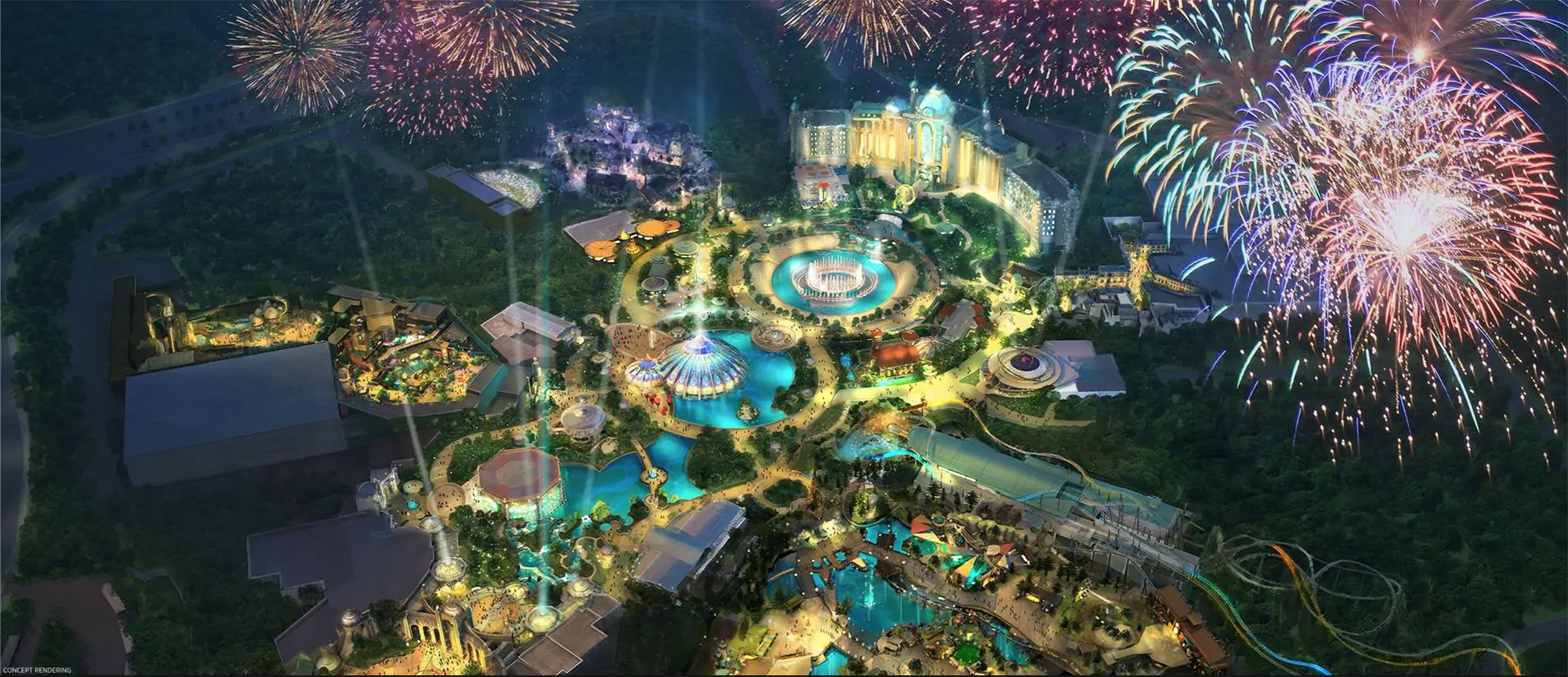
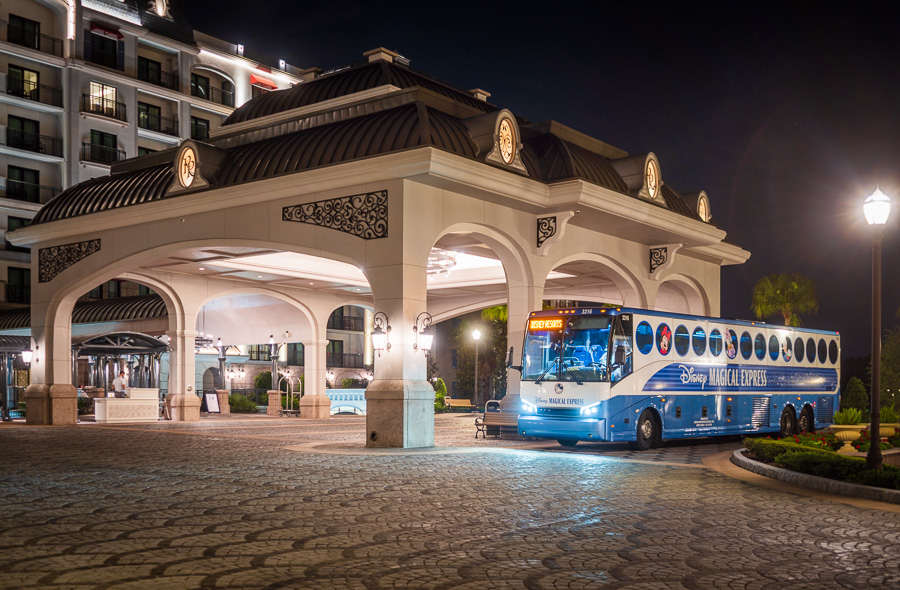
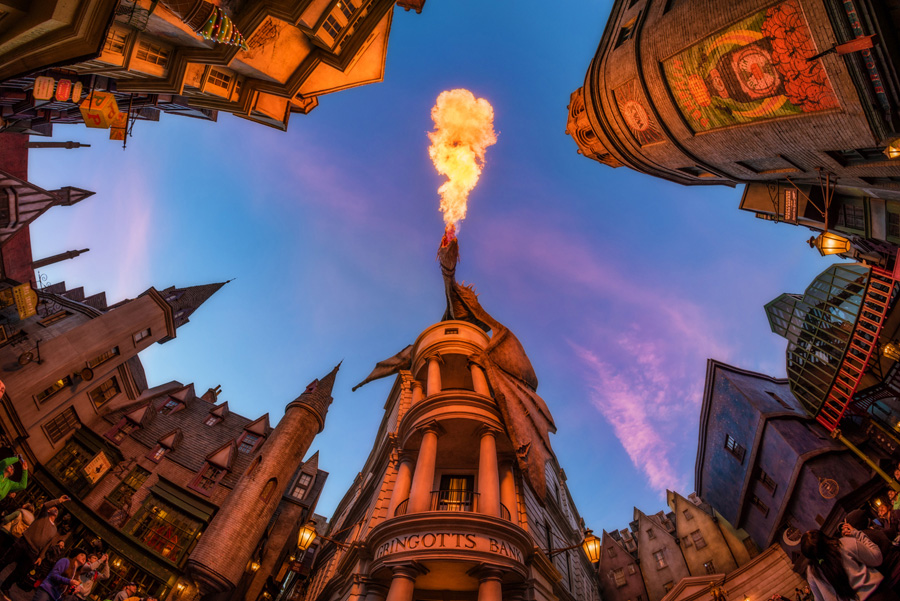
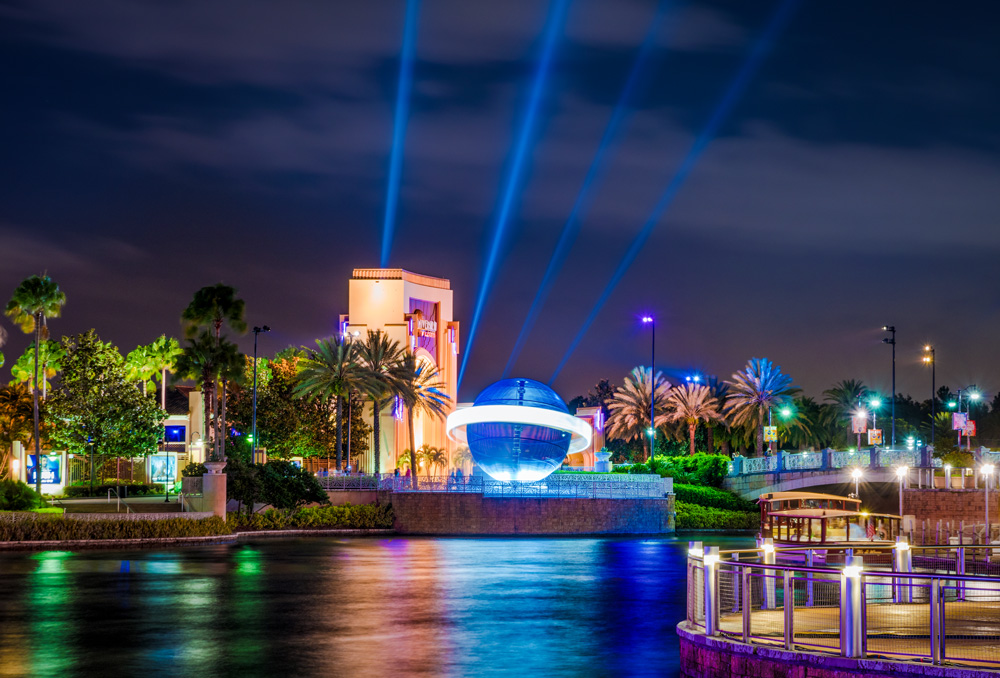
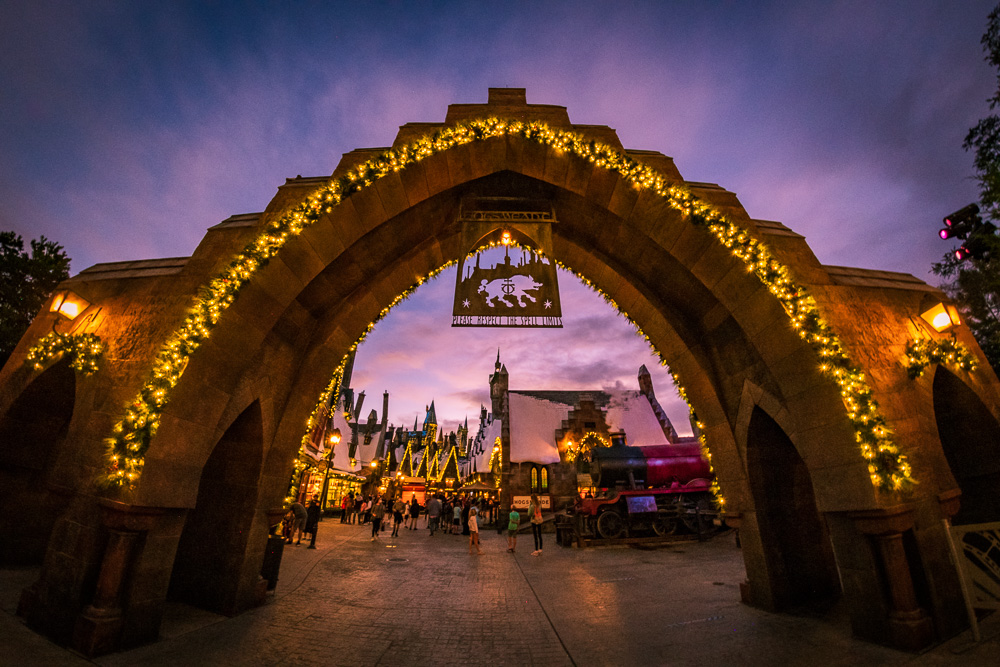
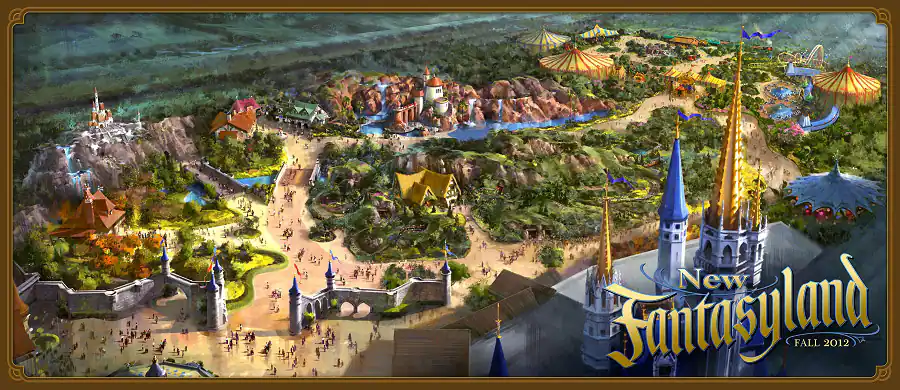
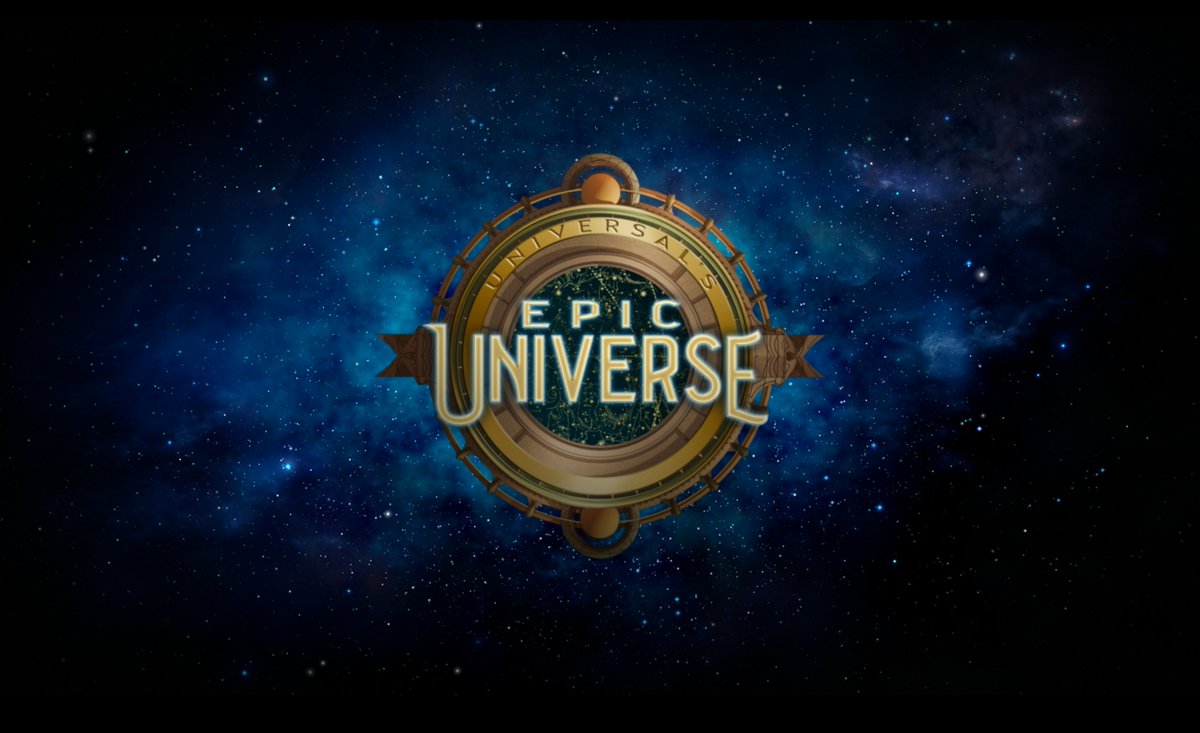
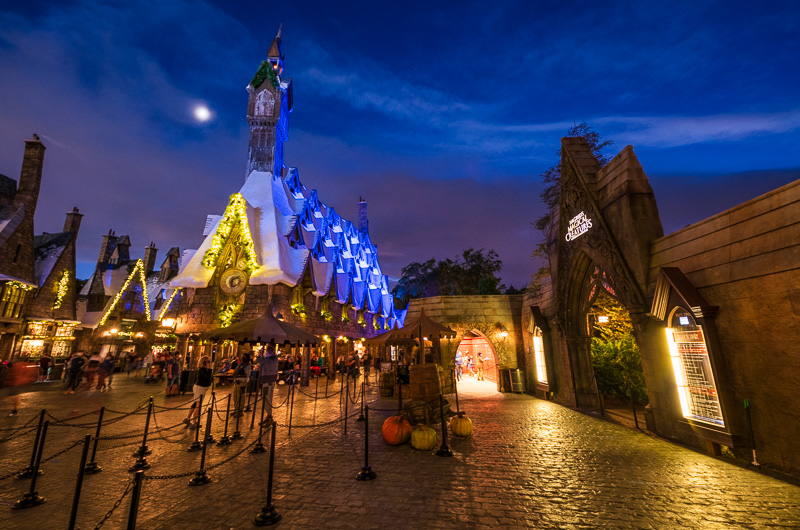
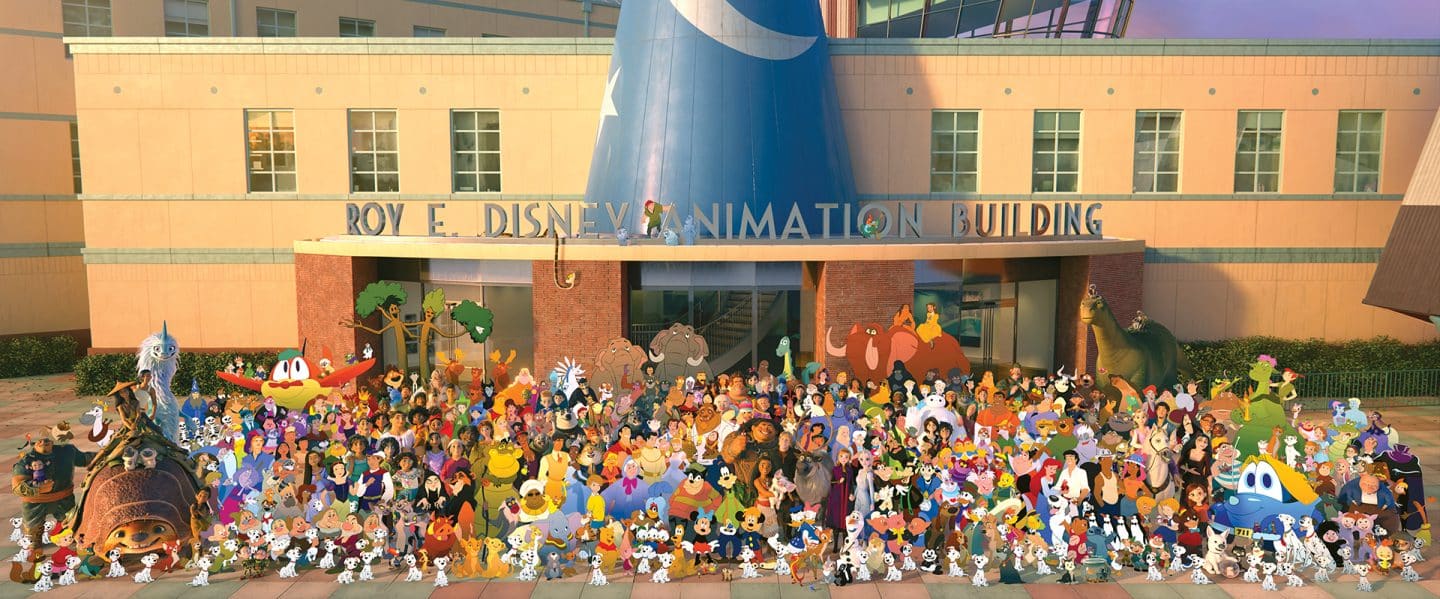
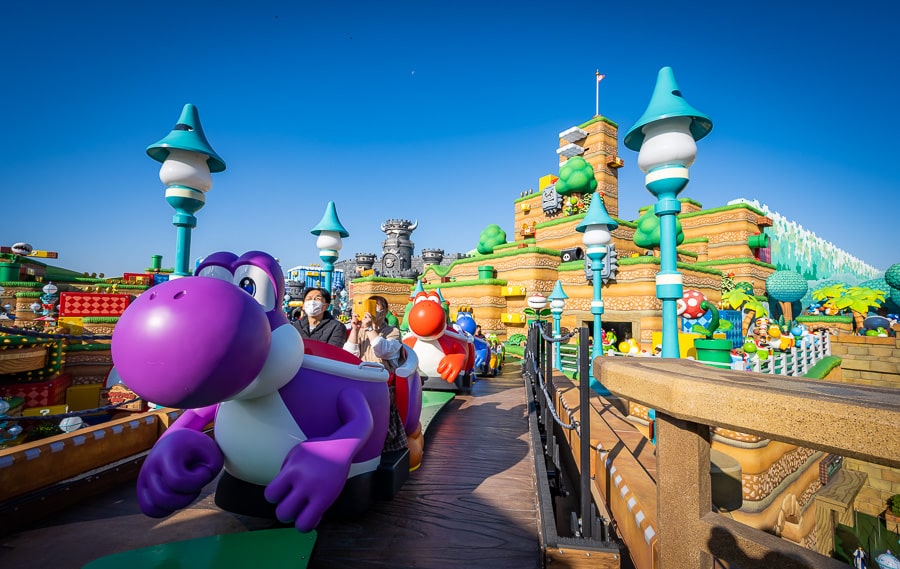
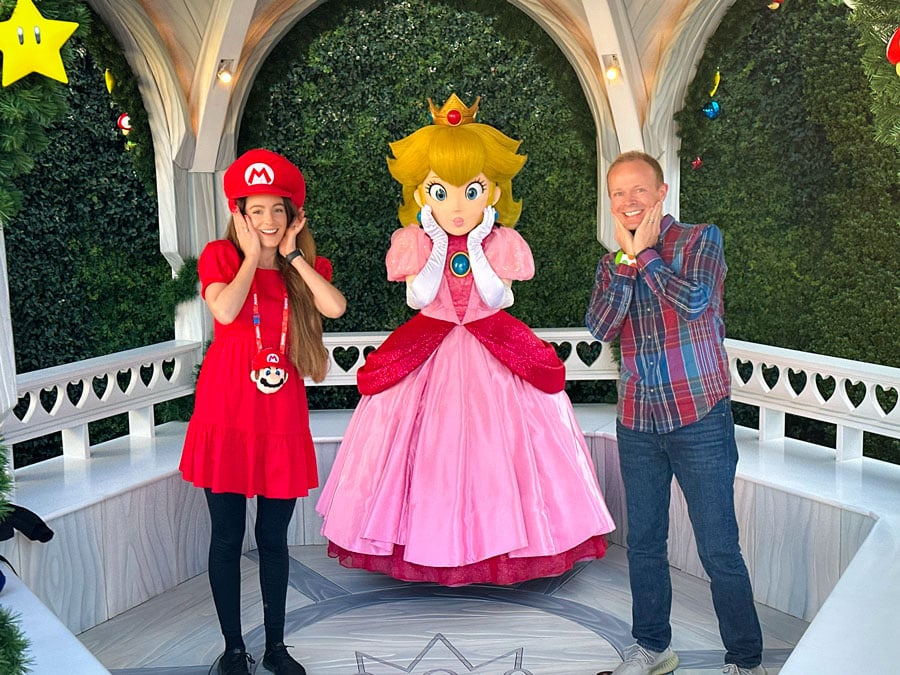
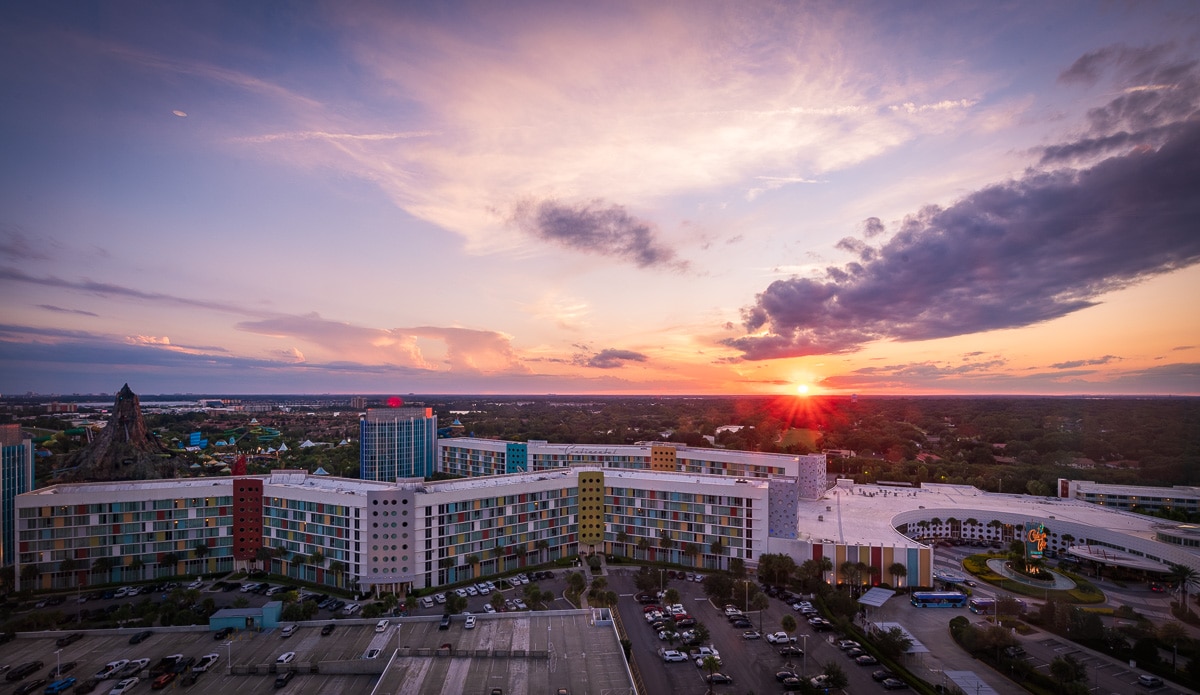
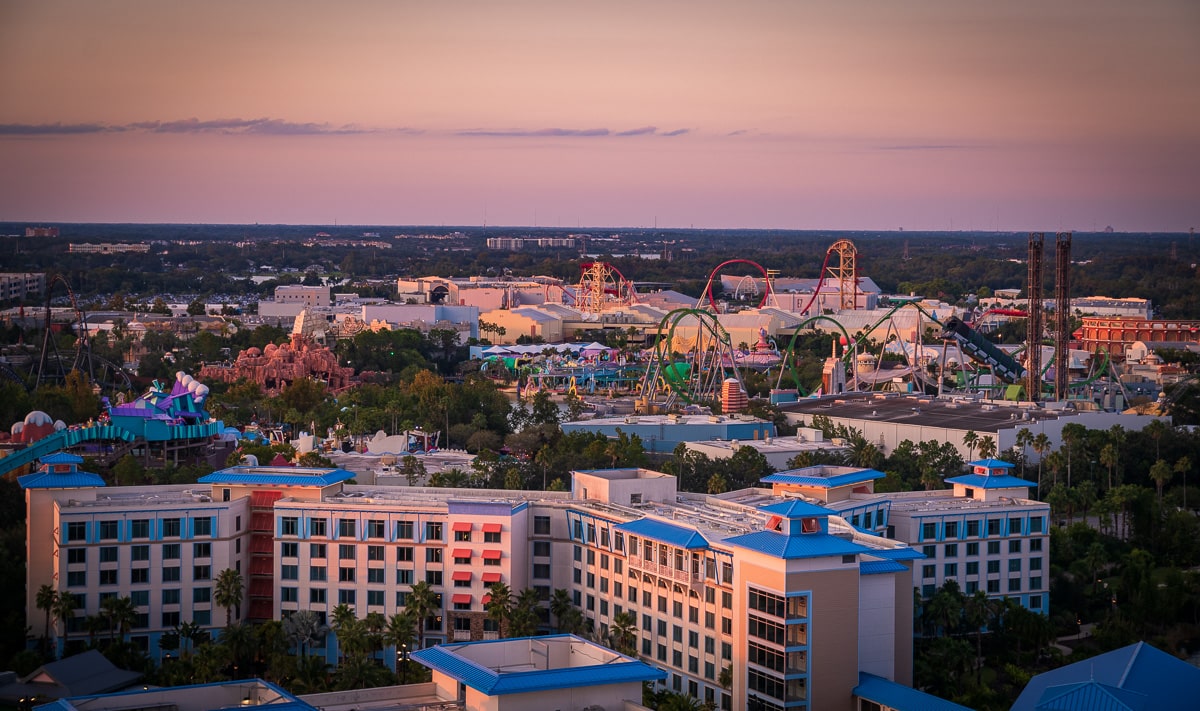
Travel + Leisure magazine recently posted an article about a survey of top vacation destinations in the U.S. Here is what it said:
In November, Radical Storage, a luggage storage company with locations around the globe, revealed the results of its survey, which polled more than 2,000 Americans on their vacation plans for 2024. The results showed that Americans are pretty closely split on what’s better, a domestic staycation (44.4 percent) or an international journey (55.6 percent). However, a much larger majority (78.9 percent) of respondents replied that they are “considering a staycation in winter 2023 or early 2024,” and a whopping 83.1 percent said they would be joining the earlier group in “planning a staycation in spring/summer 2024.”
But where, exactly, are people vacationing? The Happiest Place on Earth, that’s where.
According to the survey’s results, Disney World Resort in Orlando is the number one most visited landmark in America, with 37.1 percent of respondents saying they’ve visited at least once. Its counterpart, Disneyland in Anaheim, California, came in third place, with 29.1 percent of respondents saying they’d been once before.
Sandwiched between the two Disneys in second place was the Las Vegas Strip in Nevada, which just eked out the win over Disneyland, with 29.2 percent of respondents reporting they’d visited before. Rounding out the top five spots is the Golden Gate Bridge in San Francisco, California, with 28.5 percent of people saying they’ve seen it, and the Washington Monument in Washington DC, with 27.7 percent reporting a visit.
So in spite of the real issues discussed here, Disney World still seems to be one of top vacation sites in the country.
I am behind the eight ball on this one — yes hold to your hat, a stupid question is coming — but what is “Epic Universe” supposed to be? I understand that they are building a new Nintendo World in it — but what else will be there that is different from the current Universal park? Are they going to end up moving everything from the current Universal into this new park? That name is so generic – it can mean many things. And will it be nearby the current Universal park? Thanks!
The other two Universal parks are not changing. This will be an entirely new park with several “lands” and a spoke and wheel design just like MK at Disney. In addition to Super Nintendo World, there will be a new Harry Potter themed land, a How to Train Your Dragon land, a Universal Classic Monsters land and a central hub area; with each one having rides, shops, shows, restaurants, etc. There will also be an onsite hotel as well as two new hotels basically across the street. Only 5 or 6 miles from Universal City Walk and the other two parks. While you can get to those by boat, bus or walking paths; you will have to use a bus or drive to Epic but Universal has invested in the roads leading to the new park to have bus only lanes and ease congestion. If you google on Youtube you will get a thousand videos with construction updates and the plans laid out. The theming looks to be off the charts.
Our family of 6 adults visited Disney World during Thanksgiving week followed by 2 days at Universal Studios. Even though it was crowded we were able to enjoy the attractions that we desired because we have millennial adult children who taught us how to use the Genie+ system.
Just like other posters we strongly disliked the 7 am Genie+/Individual Lightning Lane/VQ attraction selection and its associated costs. Dinner each night was interrupted with strategizing for the next day. It just didn’t feel like the Disney magic bubble that we loved so much during past visits.
I found myself really looking forward to our time at Universal Studios because we were staying on property and Express passes were included with our hotel stay. However, we noticed early on that our Express line didn’t seem to move much faster than the regular standby line. Sometimes it even seemed slower. We stood in line for an hour just to ride the Hogwarts Express. It was different from our experience staying at Universal Studios four years ago and not in a good way. Also Universal park tickets and hotel prices for short term stays had major price increases. That was not the experience we expected based on posts from people with recent stays. I guess the grass isn’t always greener on the other side of the fence.
We truly hope that Disney World will make changes that would allow all families to experience the “magical bubble” once again.
I want Disney and Universal to avoid competition and to live in peace ✌️ and harmony .
I don’t need WDW to add anything to “compete” with what Universal’s doing…
I need WDW to fix its existing rides, booking logistics, and line procedures so that it can start competing with ITSELF circa 2014-19.* I don’t understand why that seems so difficult, bordering on impossible?
*I’m not asking for time travel back to a completely different world (1995 WDW was great!), just a restoration of what seemed to be working fine in the era immediately before the last four years.
I agree completely and this is the most right-on post I’ve seen in this entire series! One of the times we went was in 2015 and it was simply incredible. All the on site perks were still there and once you booked at a Disney World resort, you were in the Disney “bubble” and they took care of you, from the beginning to the end of your trip. This is what kept us coming back over the years. Since all of this was once in place, I’m sure it’s not that they can’t do it – in fact, it would have been far easier than the convoluted mess called Genie. I believe it’s simply a matter of wanteing the short term additional revenue, despite the fact that the long term the loss of repeat guests will more than offset the increased revenue.
Actually, they could even charge for the Magical Express and luggage handling, resort check in, and advance reservation Fast Passes – in other words, restore the bubble – and most fans would forgive them. What they won’t forgive is the negative and stressful experience that now defines a Disney World vacation.
Yes! Charge me for all of it, that’s fine! Just put it back the way it was!
… I’ll admit that I am extremely biased towards the months-out FP+ style of planning, bc I’m traveling from afar, and that that system worked much less well for locals and APs. But honestly put it back and then tell me how much revenue I have to make up to replace a proportional number of pissed-off locals and I’ll start scheduling multiple trips a year.
According to my research, Disney World annual attendance is 58 million.
There are 28,092 rooms in all Disney-owned hotels at Disney World. The latest figure I found said that the occupancy rate is 83%.
Disney says the average family visiting Disney World has 3.2 people. This means there are 27,233,508 people annually staying at Disney hotels (28,092 x .83 x 3.2 x 365). At 3.2 people per family, this equals 8,510,471 families.
Disney also says that about 70% of guests are repeat guests, so 5,957,329 families staying on site are repeat guests.
Just imagine the lost revenue if just 10% of these repeat guest families will no longer return due to the elimination of most on site advantages and the other recent changes.
Of course, these numbers are a year or two old probably and may now be way off, but you get the picture. The continued alienation of repeat guests will eventually cost Disney dearly. I wonder if their statisticians even calculate these type of numbers and if so does executive management pay attention?
Agreed! I miss the Disney bubble! The sides at most other theme parks are too much thrill for my taste (I don’t like roller coasters or bouncy/jerky rides) and it’s hard to top the characters we know and love from childhood (versus those I’ve never heard of at the other parks or that aren’t that interesting for me). Disney nails the music, ambience, carefree tone better than anyone else, even now as they’re flailing at everything else. But, if they don’t restore the magic, it won’t bring us back.
We recently made our first trip to Central Florida that didn’t include Disney-a first in 16 years of going often to see family from 12 hours away. We skipped the parks but still wanted to dine with them, because they are good with food allergies but that was a nightmare! We had ordered food and were turned away at the gate without notice. It seems you can no longer even pay to enjoy the Geyser Springs or Grand Floridian holiday decor or the Caribbean Beach vibe and access their food! That was the final straw for us and disgusted our local family members too.
Good post as usual Tom. As you note, there is plenty of demand to keep both these parks going.
What really is happening is they are segmenting the market. Families that actually saw good value and family fun (say until ~2014ish) now feel the pain as Disney pursues price realization above all else. This ultimately puts a squeeze on the middle class and larger families. Meanwhile, Universal is now the value king offering exception immersive experiences but at a lower price point and more amenities.
My true concern is Disney beating Disney as you said it short term gains in exchange of long term loyalty and reputation that drives repetitive travels -customers for life.
Have you seen Josh D’amaro acknowledging that the brand has taken steps back, or acknowledging that customer service is not what it used to be? Honestly asking if any of the forums where you have been there is any indication of it?
The first step for solving any problem is recognizing there is a problem and publicly at least that doesn’t seem to be the case.
I think the addition of EPIC UNIVERSE to Universal’s lineup should very much concern Disney. There’s a great line from the original Rocky in which Apollo’s trainer exclaims to him ” He(Rocky Balboa) doesn’t know it’s a damn show…HE THINKS IT’S A DAMN FIGHT!”. Disney feels like Apollo Creed right now; ignoring a hungry opponent.
Combining Epic Universe(which is bigger than DisneyLands MK and California Adventure combined….not counting the room for expansion) with the room that they have for expansion in Islands of Adventure and Universal Orlando is very much going to propel Universal into a “destination vacation” in which a family would want to spend a week there. While I do think its a bit unfair to not commend Disney on their expansions/new attractions over the past decade (Pandora/Toy Story Land/Galaxy’s Edge/Guardians of the Galaxy/Ratatouille/TRON/Mickey’s Runaway Railway/Tiana’s Bayou)… I think a number of them haven’t quite resonated with the public; be it because they’ve replaced existing, beloved rides(Tiana,Runaway), they’re clones of overseas rides (TRON/Ratatouillle) or there’s a bit of a perception of them getting done “on the cheap” (Galaxys Edge/Toy Story). Universal has learned lessons from Disney in regards to theme park presentation (I’d still stack Harry Potter up against anything Disney had), is at least paying lip service to what their fans want (rumors floating of a JAWS return and creating a new Fast and Furious attraction in Hollywood that might lead to the replacement of that ride in Orlando) and is willing to spend money. That’s a dangerous combination to have in an opponent. Disney still has the IP advantage, but with the addition of Nintendo to Harry Potter, Jurassic Park, Halloween Horror Nights, Universal Monsters and The Fast And the Furious (don’t laugh…it’s a top 10 movie franchise of all time) that gap is closing fast; particularly since Disney cannot bring the full force of the MCU down on Central Florida. I’m not as sold on the cliche of “a rising tide raised all boats” in regards to direct competition between two entities competing for the same dollar, but, as a fan of both parks and who will continue to spend vacation dollars at each of them, I hope BOTH companies embrace the idea that “iron sharpens iron”. I’d love to see a very impressive EPIC UNIVERSE debut followed by a more impressive (as they learn how to make things better from EPIC) Disney Park debut a few years after.
If some long term fans are like my family, it’s not so much the attractions as the experience – which is what Disney has managed to damage perhaps beyond repair. Especially for guests staying on site. For us, a few new attractions don’t offset the terrible, stressful, and expensive experience of Genie + and the replacement of most on site perks with paid (and inferior) replacements. It’s difficult to believe that Disney doesn’t realize this, so the only other alternative is that they don’t care so long as revenue-per-guest continues to rise.
“ For us, a few new attractions don’t offset the terrible, stressful, and expensive experience of Genie +”
Weird. We’ve tried Genie+ in every park including Disneyland and DCA and it’s worked great. We saved hours of waiting in line, but will skip it at AK next time. We assign one person in the group to manage Genie+ and the rest can stay off their phones, except for selfies 🙂
I love the “Rocky” reference, my man Al. I will go one step (quote) further- “There is no tomorrow!”
Disney World only. Have never been to Universal and never will. What if the “Epic Universe” is even cooler than Magic Kingdom or Epcot? Yeah, like that’s gonna happen.
How can you have an informed opinion of the quality of Universal one way or the other if you’ve never been?
What Tom said. If you don’t want to go that’s fine, but how can you know what is “better” for any individual/family if you have never experienced it. We actually go to Orlando and mostly stay at Universal and visit Disney as the side trip, but that’s us. I don’t really think of it as one is better than the other, just what we prefer and there are pros and cons to both, but at least I have been to each multiple times and have an informed decision. Sheesh.
It’s certainly the taken for granted feeling. We’re paying more and getting less. It’s not just Disney, to be fair, but when something costs $$$ already, people want value. I work in finance, so I’m already stingy on my budget vs value, and it’s hard to keep paying more when the rest of the company is being so financially irresponsible. If the Genie+ money was being invested in the parks’ upkeep and cleaning, fine, but we’re not really seeing anything in return.
With all of the complaints about Disney raising prices, it’s worth noting that prices have gone up everywhere. Here in Dollywood today, prices are also high, $92 per person for a small park in the middle of nowhere. Yes, that’s a lot cheaper than Disney, but the park is also noticeably shabbier, with worn surfaces needing paint, and of course the whole park isn’t in the same class as Disney or Universal.
Want to see the Stampede show? That’s an extra $89 a person for a 90-minute dinner show or $420 for a family of four.
Want to go tubing? That’s $50/person with a $20/person extra fee to take the tram to the top of the mountain. 90 minutes of tubing for a family of four is $280.
My first visit to Disney World was on my honeymoon in 1976. Since then, I have traveled from Ohio at least 25 times to visit WDW . My wife and I have purchased annual passes three times. Most visits included at least some if not all of my family, which now numbers nine. Due to recent changes at WDW, we have decided to give Universal a try. All nine of us are leaving in two days for a holiday trip.
I saw your past pictures of universal’s Christmas overlay. My takeaway was “brutally bad”. The Blues Brothers car with the “one night only” bullhorn was stuffed with a bunch of random Christmas decorations as if it was some kind of cornucopia. Just no. Not interested, at all. So tacky. Not into it. Disney > Universal, and I don’t see that changing anytime soon.
I don’t think that’s particularly fair. Those decorations are on-theme for the Blues Brothers–it’s the kind of homemade decor you’d expect those characters to affix to their car.
It’d be like dismissing all of Walt Disney World’s Christmas decorations on the basis of Dino-Rama. Even as the world’s #1 hater of that land, even I can recognize that the decor there is on-theme and good for what it is.
Same idea at Universal. The decorations in Wizarding World of Harry Potter, Port of Entry, Seuss Landing, etc., are all fantastic and tastefully done.
Again. Please don’t pass judgement when you have never attended the park. As stated that was on purpose to fit in with the characters of the Blues Brothers. Maybe you will like Disney better but I just cannot stand it when people make judgements based on what they heard or saw in a picture. It’s like criticizing a movie you have never seen.
Nice analysis that I just coincidentally happen to agree with :-). As I write this, I am getting ready to go into Dollywood when it opens at 11, having previously gone to both Disneyland and Disneyworld earlier in the year.
While I am a huge Disney fan, I don’t think you can properly appreciate their accomplishments unless you visit other parks. All theme parks have their individual charms, which is why I’ve enjoyed Universal in Orlando, Six Flags, King’s Island, Cedar Point, and Dollywood just this week. Enjoying Disney does not mean eschewing other parks, but rather makes me appreciate what each of them does best.
BTW, Dollywood was a hoot yesterday, all decorated for Christmas and crowds so light most of the rides were walk-ons. Of course, it was 35 degrees with a stiff breeze so you have to bundle up, and that probably keeps the crowds down.
The only downside of being a theme park fan is that now, in my sixties, I don’t have any peers who still ride coasters :-(. Given my grandmother enjoyed them into her eighties, hopefully, I’ve got 20 good coaster years left.
“The only downside of being a theme park fan is that now, in my sixties, I don’t have any peers who still ride coasters :-(. Given my grandmother enjoyed them into her eighties, hopefully, I’ve got 20 good coaster years left.”
We have adopted many of the best practices from Blue Zones for precisely this reason! I know a lot of that is contested/unsupported by science, but the salient point–that people with certain lifestyles and diets live longer and more active lives–is undeniably accurate.
Someone needs to ride roller coasters with our daughter when she’s in her teens and twenties, so there’s that. More selfishly, I want to be able to ride whatever crazy contraption they come up with when I’m in my 80s!
Hope you have a great day at Dollywood. That’s on our ‘someday’ list!
My 74 year old Dad went on Incredicoaster with me (44) a couple of weeks ago. It was our first new coaster together since I was a teenager and I hope to have many more years of rides with him and eventually with my daughter when she is older.
Awesome, good for him! And you too. My own daughter struggles with chronic health problems that makes it impossible for her to accompany me, so enjoy what you are able to do with your father while you’re both healthy.
Check out American Coaster Enthusiasts (you can google it and get their website) LOTS of folks your age in the club and still riding, 7,000 strong. They have lots of events at parks all over the world
I kinda love this conversation, even though it is absurd – the offerings are unique enough between the companies that I truly believe neither Disney nor Universal are direct competitors. Debating which is “better” is like trying to decide whether Seven Dwarves Mine Train is better than Velocicoaster – it’s all a matter of perspective!
Disney (and Universal for that matter) will sink or swim based on its ability to lean in on its unique brand and storytelling offerings. I’m rooting for both, even though I’m not really a Universal customer and I was until recently an annual passholder for Disney (stopped being because cost crossed that threshold for our family where the vacation budget was better allocated elsewhere, at least for now). But I can’t shake this feeling that Disney isn’t being managed as well as Universal in the Parks department. Time will tell the tale.
Thankyou for another interesting article. First time commenter….
As UK visitors we visit every years for a more extended period (14-17 nights). On previous occasions we have visited both Disney & Universal making for a fast paced and tiring holiday!
This year, 2023, we started to change the makeup of these visits in anticipation of Epic Universe and as a reaction to the add on costs. We visited solely Disney this time (still saying offsite as Disney onsite was too costly vs offsite) as it allowed us to soak ourselves in Disney at a more relaxed pace knowing we didn’t need Genie+ as we had plenty of time and we also enjoyed some resort hopping that we never had time for before.
It also means our next visit 2026/27 will be solely Universal as once Epic Universe arrives we feel this is a full time holiday on its own. We will likely have a resort wandering day for a Disney fix but with no significant additions or changes on the horizon we don’t plan to revisit in the near future.
I don’t think either beats the other as they are both great. But I suppose the lack of ‘answer’ or even tangible development from Disney is influencing our choices… not that we feel hard done by but it’s a big old world we live in and maybe we can squeeze some Disney fix’s in while visiting other places such California, Tokyo or a cruise!